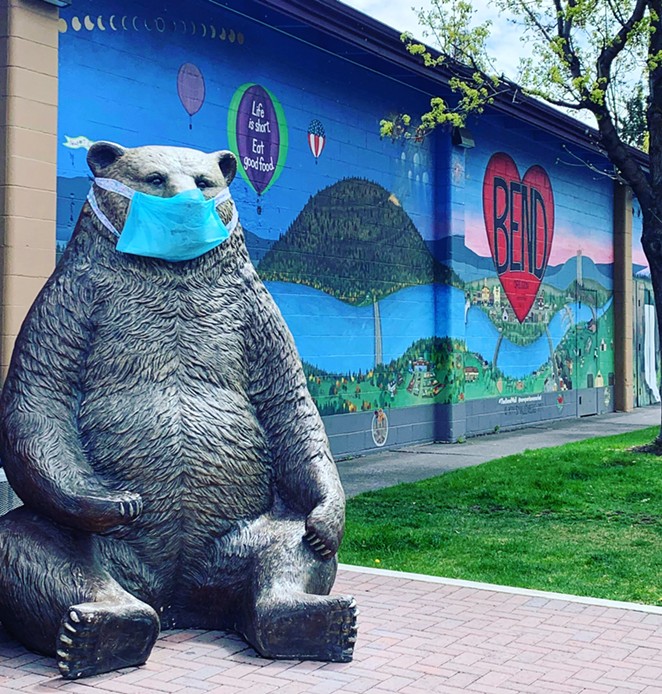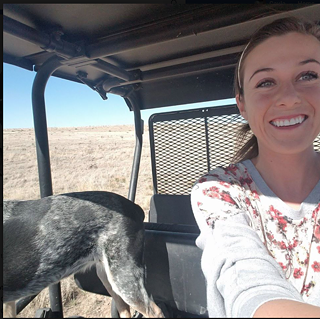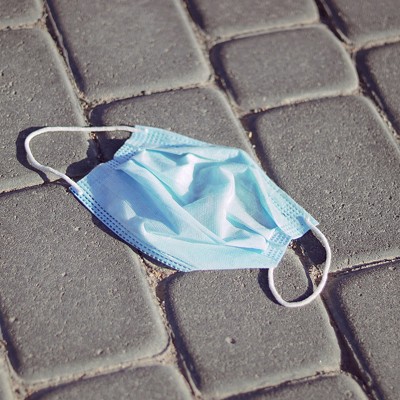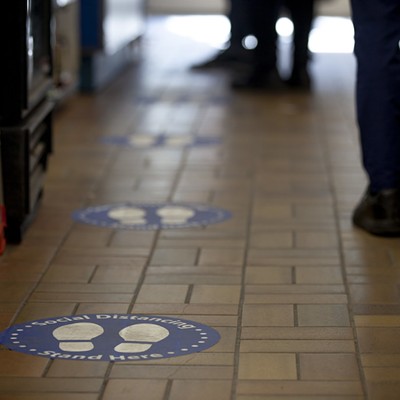With the rise of COVID-19 came the rise of misinformation. Scientific facts became topics of debate.
One of the most controversial topics in the current climate is mask wearing: should we or shouldn’t we? After posting a brief prompt on social media to see just how divided the general public was, I was surprised by the rapidity of responses. Here are some of the comments that flowed in within the first five asking, “What’s your take on wearing masks?”“One of my residents is heart broken that the country he fought for in WWII can't manage to wear a mask for his safety.”
tweet this
“My immune system works just fine… if yours doesn’t, stay home.”
“It’s all about respect. But for goodness sake, know how to wear them so they work.”
“I am a gambler.”
"I wear a mask because I don't mind the minor inconvenience if it helps protect the mental well-being of others."
“One of my residents is heart broken that the country he fought for in WWII can't manage to wear a mask for his safety.”
“I sincerely believe that people who think that wearing a mask is infringing on their civil liberties have never lived under a truly oppressive regime before and have no understanding of what it really means to make a sacrifice or have their freedom infringed upon. If they did, they wouldn’t be complaining about a small piece of cloth.”
“Because I do respect people and their health, I choose not to wear a mask that air, droplets and aerosols can pass through.”
Despite all of the controversy, the Centers for Disease Control and Prevention recommends wearing cloth face coverings in public.
“While people who are sick or know that they have COVID-19 should isolate at home, COVID-19 can be spread by people who do not have symptoms and do not know that they are infected,” the CDC's recommendation reads. “That’s why it’s important for everyone to practice social distancing (staying at least 6 feet away from other people) and wear cloth face coverings in public settings. Cloth face coverings provide an extra layer to help prevent the respiratory droplets from traveling in the air and onto other people.”
Heather Broughton, an Instructor of Anatomy and Physiology I and Disease Ecologist at Oregon State University, gave her take on the importance of wearing masks. "It’s vital that everyone wears masks, even if they are young and healthy, because you can carry and transmit the infection without knowing. This is even more likely in young healthy people are concerned," she said.
Still, even some health care workers think it's a personal choice.
“The transmission rate from asymptomatic carriers is sooooo beyond low that they are saying it was almost impossible to get it,” explained Kali Reanna Smith, local healthcare worker. “I have to wear a mask all day and for my personal opinion I’d rather not wear one. I feel awful at the end of the day, congested, tired, I have a headache. I get home and get outside and instantly feel better. Plus, I am constantly touching my face and mask to readjust it all day long. I personally feel if you want to wear a mask, do it. If you don’t, don't.”
“Wearing a mask is the strongest sign of patriotism you can make in today's America,” countered Bendite Nicolas Saraceno. “It shows you care about the health and safety of your fellow Americans. It shows you care about the economy. It shows you care about the financial impact being felt by so many. It shows you care about America.”
Karen Sipes, a local school teacher added in, “I don't go out in public really, but when I am working around people, at times that I have to, I wear mine. And yes, I've read all the things, done all the sciencing, consulted health care professionals and made an informed choice. I have a compromised immune system, and am a cancer survivor, so it's a no brainer for me. People who would suggest I need to build my immunities don't realize perhaps that I have worked for better than 20 years in a petri dish, as a teacher of young children. Basically, I am done with advice from the general public in regard to my health.”

“If you’re out in public, just do it,” added local parent Sara Charney Cohen. “At the moment, without readily available active virus or antibody testing, I don't know whether I am a carrier or not. Just because I feel fine doesn't mean I can't make someone else sick. I can't tell who around me has a heart condition or diabetes just by looking at them. One unexpected sneeze or cough could send the virus their way even at distance, so I wear a mask. It's a minor inconvenience to me, but potentially life-saving for someone else.”
The study Smith, the health care worker, is referring to was published by the National Library of Medicine in mid-May, and conducted by scientists with the Chinese Center for Disease Control and Prevention. In the study, researchers studied 455 individuals who were exposed to an asymptomatic COVID-19 virus carrier.
“During the quarantine, seven patients plus one family member appeared new respiratory symptoms, where fever was the most common one. The blood counts in most contacts were within a normal range. All CT images showed no sign of COVID-19 infection.” The study facilitators ultimately concluded that “the fainfectivity of some asymptomatic SARS-CoV-2 carriers might be weak.”
"The large droplets carry the infectious dose—the number of viral droplets necessary to cause an infection," she said. "If you get only a few viral particles, such as when you exhale, your immune system can clear them before they have a chance to cause an infection. When you get hundreds to thousands, such as what is carried in the large droplets you cough or sneeze out, they overwhelm your immune system and are more likely to cause an infection. The masks catch the large droplets to prevent you from infecting someone else. The masks don’t protect you unless the other person is wearing one."



























